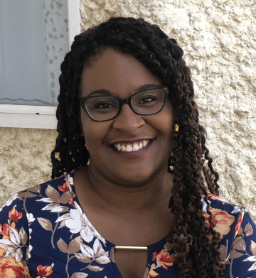
These five words, often expressed at the end of an event or gathering, have come to mean more to me over the years as I’ve worked in Spiritual Care. I have found that the art of “being” with others who are navigating this winding journey called life brings the most meaning and makes the most difference. Eliminating any personal agenda or need to “do” something enables me to be present and remain in the moment.
I’ve had the privilege of walking alongside people during profound moments of suffering and loss and have found that often the single most powerful and meaningful thing I could do is to bear witness to their pain. For many, the urge to “fix” or provide ready-made solutions is something we need to unlearn or consciously pay attention to. People aren’t necessarily looking for answers; they just want their suffering to be seen and validated. When it comes to this principle, I often think of Job’s friends when they first encounter him after all his losses. The scripture says they simply sat with him for a week, not saying a word, because they saw how great his suffering was. Once they started offering advice, that’s when things got complicated. For me, this imagery is helpful because it emphasizes the difference between being and doing.
In times of loss, one’s spirituality often comes to the forefront. Questions arise about one’s meaning and purpose in life, as well as one’s relationship to self, loved ones, and others. “Why is this happening to me?” “Who or what is important in my life?” and “How do I make sense of this?” are just a few spiritual questions I hear regularly. At times, religious beliefs or practices may be included, but regardless of whether one is religious, these existential questions and the answers one ascribes to them, affects how one responds to the difficult circumstances before them.
One example of this comes from a visit I had with a dying patient. The patient, who was not religious, was having what one might call a “crisis of faith” as they grappled with the fact that they lived their life doing everything they believed would keep them healthy and let them enjoy a long life, but it was all in vain. As they laid in their bed with weeks to live, realizing all their hopes and dreams for retirement would not materialize, they lamented lost opportunities and struggled to understand why their friends, who in their opinion did not live healthy lifestyles, continued to enjoy life. I did not attempt to offer solutions or standard pat answers. I sat with them in their pain, held their suffering, and created a safe space for them to process their emotions and explore their spirituality.
We are human beings, not human doings. This phrase is tossed around often, but the next time you hear “Thank you for being here,” reflect on how your presence influenced the encounter






